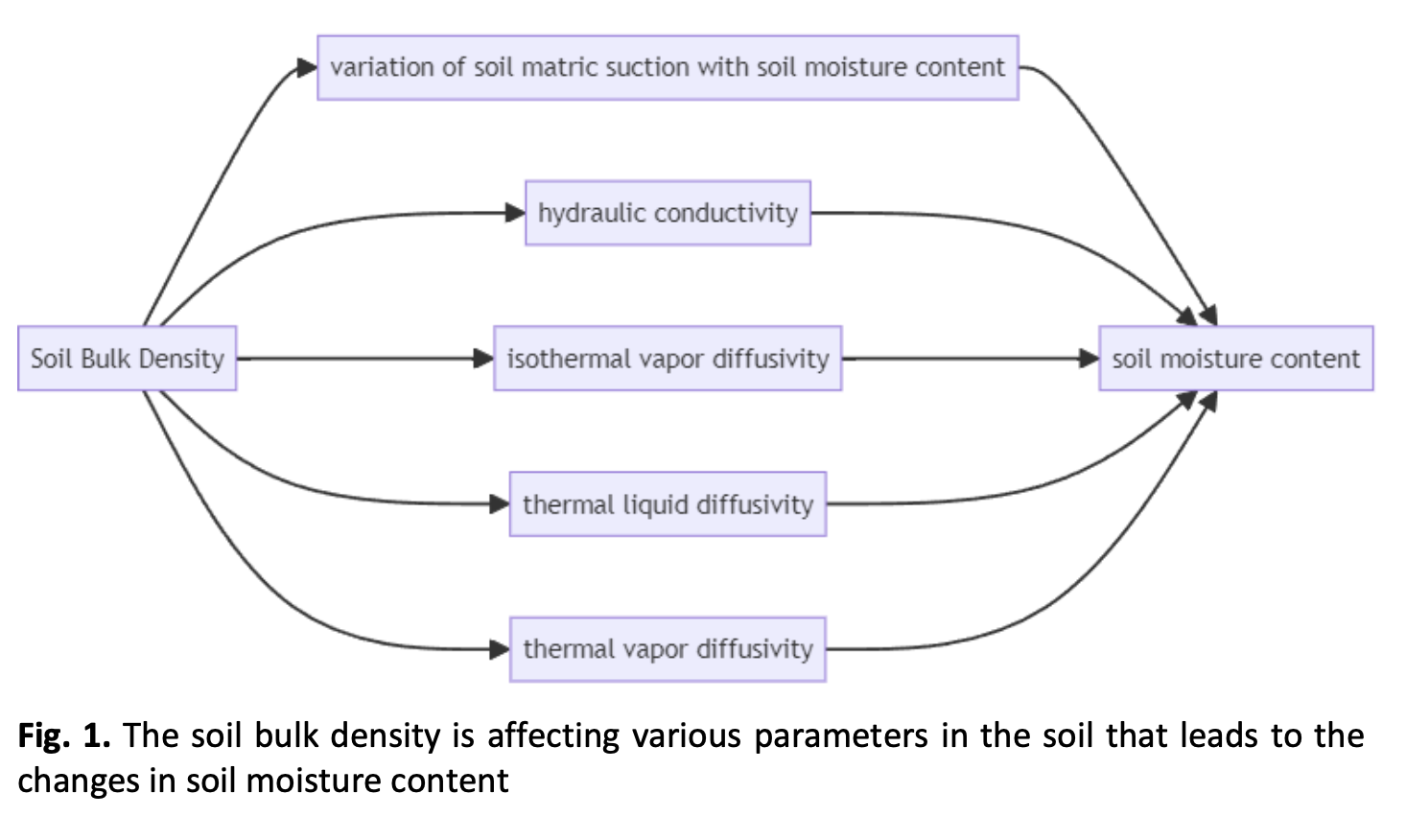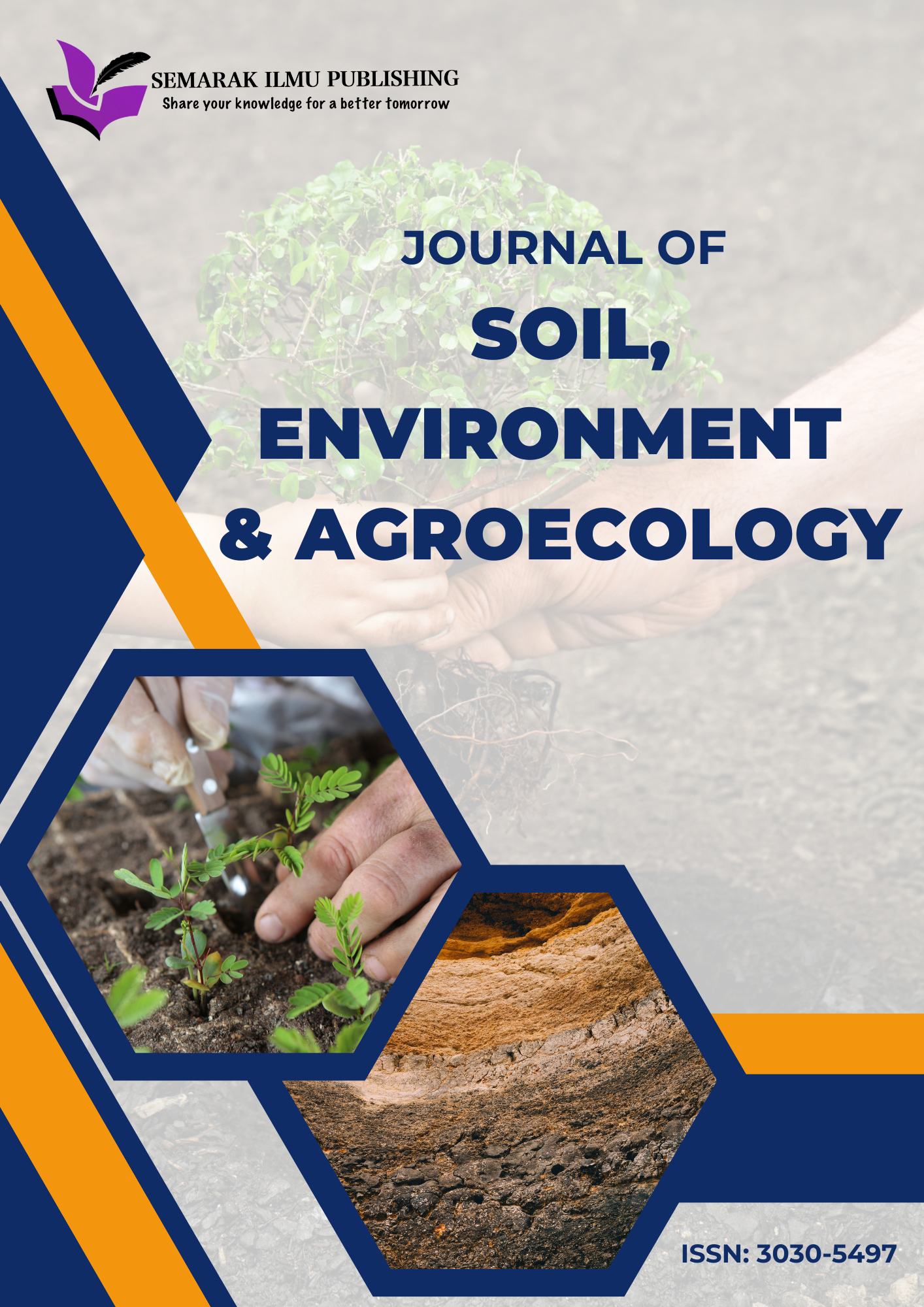Factors Affecting Soil Bulk Density: A Conceptual Model
DOI:
https://doi.org/10.37934/sea.1.1.2745Keywords:
Soil compaction, compacted soil, soil organic carbon, soil physical properties, soil hardpanAbstract
Soil bulk density is an important aspect of soil properties, and it can affect agroecology as in diversity, synergies, efficiency, recycling, and resilience. Diversity as in soil low in bulk density allows greater penetration of plant roots allow better access of water and nutrients. The synergistic effect of adequate supply of soil moisture content in forming moderately low soil bulk density for deeper plant roots for better access to water and nutrients. Agroecology efficiency reduces the need of external inputs to reduce environmental impact related to the resulted excessive pollution and wastage. Ultimately, an improved soil bulk density may increase the overall agroecosystem resilience and output, thus, improving the efficiency. Recycling in agroecology involved mass recycling and heat circulation as in nutrient, water, and waste reduction. A high soil bulk density will impede the recycling process the soil. Resilience as in drought resistance is for soil not too loosely packed that cannot hold water or too compacted until flooding water occurs at the surface and too little water infiltrates the soil. In addition, soil bulk density can affect the estimation of soil moisture content and temperature distribution. The ability to understand the factors that influence changes in soil bulk density would improve the predictive ability of the current model. The current study conducts a review on factors affecting the soil bulk density that is divided into soil physical, chemical, biological, environmental, and management practices. A cumulative of more than 50 factors are discussed in the review on how it affects the change in soil bulk density. The current review illustrates the conceptual relation of these factors on soil bulk density. Also, the result of the current work can be used to support future endeavour by turning the conceptual relation into quantifiable predictive model.










